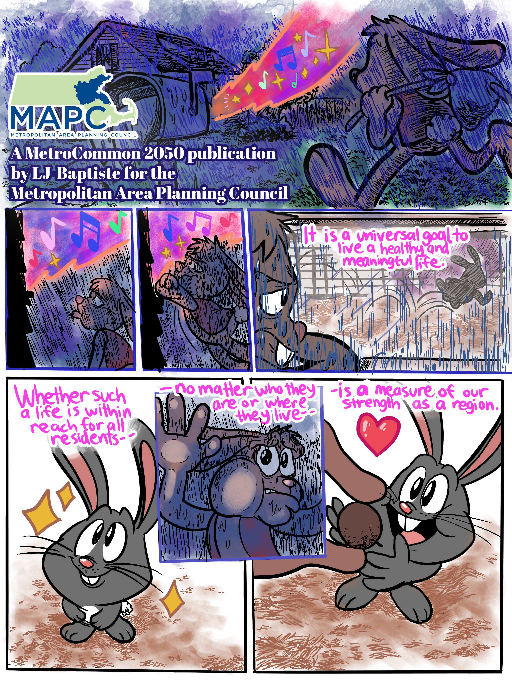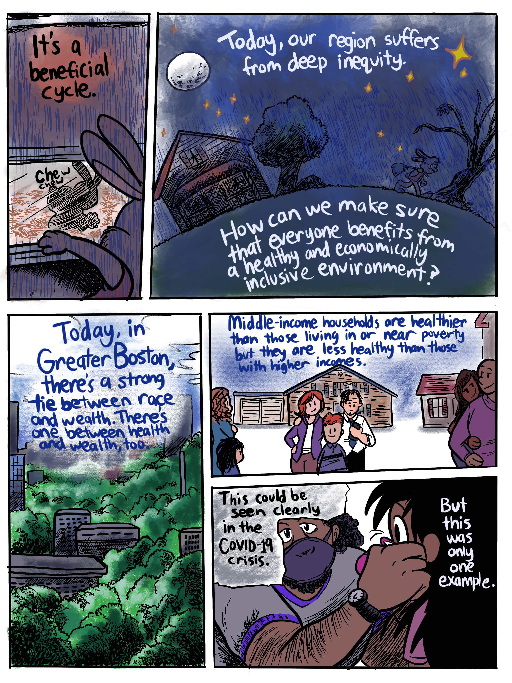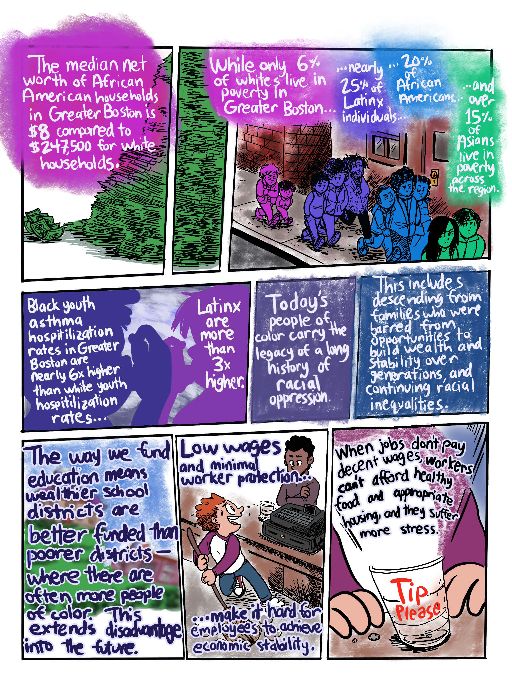Health, equity, and prosperity: there are three strands of a single system, braided tightly together. Read this new original comic by Dorchester's Ludgy Jean-Baptiste to learn and share the basics.
This comic was created as part of MetroCommon 2050 and is free for use by planners, policy-makers, and others to use as a tool to educate stakeholders.
Transcript
It is a universal goal to live a healthy and meaningful life. Whether such a life is within reach for all residents—no matter who they are or where they live—is a measure of our strength as a region.
It's a beneficial cycle. Today, our region suffers from deep inequity. How can we make sure that everyone benefits from a healthy and economically inclusive environment?
Today, in Greater Boston, there's a strong tie between race and wealth. There's one between health and wealth too. Middle-income households are healthier than those living in or near poverty, but they are less healthy than those with higher incomes. This could be seen clearly in the COVID-19 crisis.
But this was only one example.
The median net worth of African American households in Greater Boston is $8 compared to $247,500 for white households.
While only 6% of whites live in poverty in Greater Boston, nearly 25% of Latinx individuals, 20% of African Americans, and over 15% of Asians live in poverty across the region.
Black youth asthma hospitalization rates in Greater Boston are nearly six times higher than white youth hospitalization rates. Latinx hospitalization rates are more than three times higher.
Today's people of color carry the legacy of a long history of racial oppression. This includes descending from families who were barred from opportunities to build wealth and stability over generations, and continuing racial inequalities.
The way we fund education means wealthier school districts are better funded than poorer districts where there are often more people of color. This extends disadvantage into the future.
Lowe wages and minimal worker protection makes it harder for employees to achieve economic stability. When jobs don't pay decent wages, workers can't afford healthy food and appropriate housing, and they suffer more stress.
So what can we do?
- Improve neighborhoods: A community's built and natural environments affect the health of its residents. So do social ties. More than 60% of people's health can be traced to what their neighborhoods are like.
- Fund preventative health
- Invest in public health infrastructure
- Center healthcare on patient outcomes
- Create more ways for those who have experienced economic inequities to build wealth and assets.
As the region recovers and rebuilds, we have opportunities to grow and create like never before. Let's shape our region together!
MetroCommon 2050 is Greater Boston's new policy and land use plan. For more information, please visit metrocommon.mapc.org.
Artist LJ-Baptiste can be reached via email at [email protected] and his work can be viewed on www.comixscape.net.





